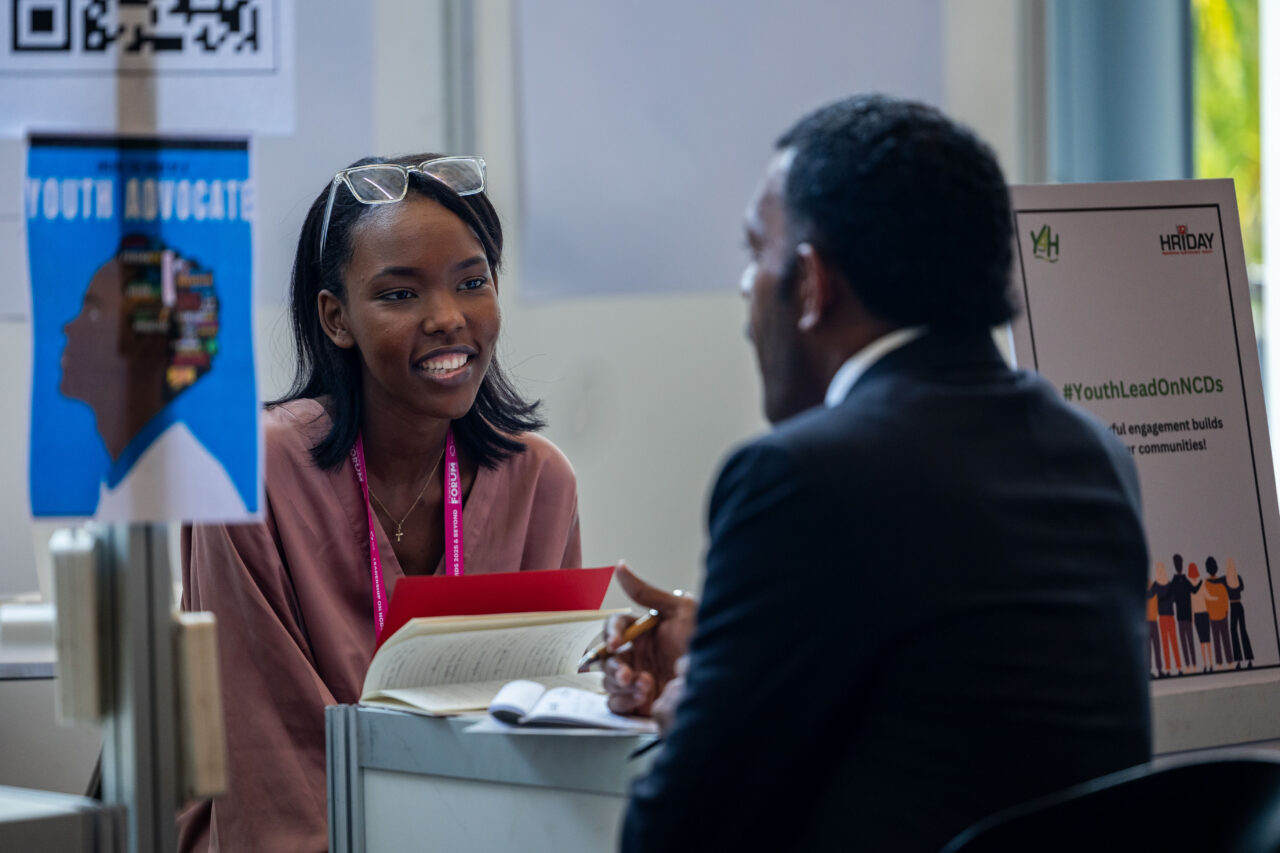
The energy in the Kigali Convention Centre was palpable. While seasoned experts debated policy at the 4th Global NCD Alliance Forum, a different kind of energy pulsed through the halls: the energy of youth.
Young people, often relegated to the sidelines of global health discussions, took center stage, demanding a seat at the table and a voice in shaping their own health future. The launch of the Kigali Youth Declaration served as a powerful testament to their commitment, their concerns, and their unwavering call for action.
“The Kigali Youth Declaration, co-created by young people in the global NCD community,” the declaration itself proclaims, “highlights the urgency of addressing youth concerns and taking action against NCDs, including mental health. Our rights, health, and well-being must be at the centre of a collaborative action plan to build healthy, safe, and sustainable living environments.” These weren’t just words on a page; they were a battle cry.
The declaration paints a stark picture of the challenges facing young people today. “Globally, NCDs kill 18 million people before they turn 70,” it states, citing WHO statistics. “Of these, 82% are in low- and middle-income countries (LMICs).” The numbers are sobering, but they also fuel a sense of urgency. Young people aren’t just statistics; they are the future, and they refuse to stand by as their health is compromised.
“One in seven young people experiences a mental health condition,” the declaration continues, highlighting another critical concern. “Yet many lack accurate information and access to the care and support they need.” This is a generation grappling with unprecedented levels of stress, anxiety, and depression, often without the resources to cope. And they are demanding change.
The declaration outlines the specific challenges young people face in the fight against NCDs and mental health. “Limited representation in decision-making processes,” it states. “A lack of youth-focused strategies. Targeted marketing by commercial actors. The absence of meaningful youth representation in policy-making.” These aren’t just abstract issues; they are concrete barriers preventing young people from accessing the care and support they need.
Vivian Leal, of Costa Rica SaludHable, a member of the Latin America regional break-out group, articulated the frustration felt by many young people. “I have the right to know what is in the products I consume,” she declared, highlighting the need for transparency and accountability from the food and beverage industry. Young people are increasingly aware of the manipulative marketing tactics used to promote unhealthy products, and they are pushing back.
Diego Rodriguez, of the Uruguay NCD Alliance, echoed this sentiment. “The industry has a lot of money,” he acknowledged, “but we have something much more valuable: commitment, ethics, the ability to act, and the motivation to protect our children, friends, and families. That cannot be bought with money.” This is a generation driven by purpose, by a deep sense of social justice, and by a determination to create a healthier world.
The Kigali Youth Declaration is meant to not be just a document; it’s a call to action. It’s a demand for bold leadership, for meaningful youth engagement, and for a fundamental shift in how we approach NCDs and mental health. It’s a reminder that young people are not just the future; they are a powerful force for change in the present. They are on the front lines, demanding a healthier future, and their voices cannot be ignored.


